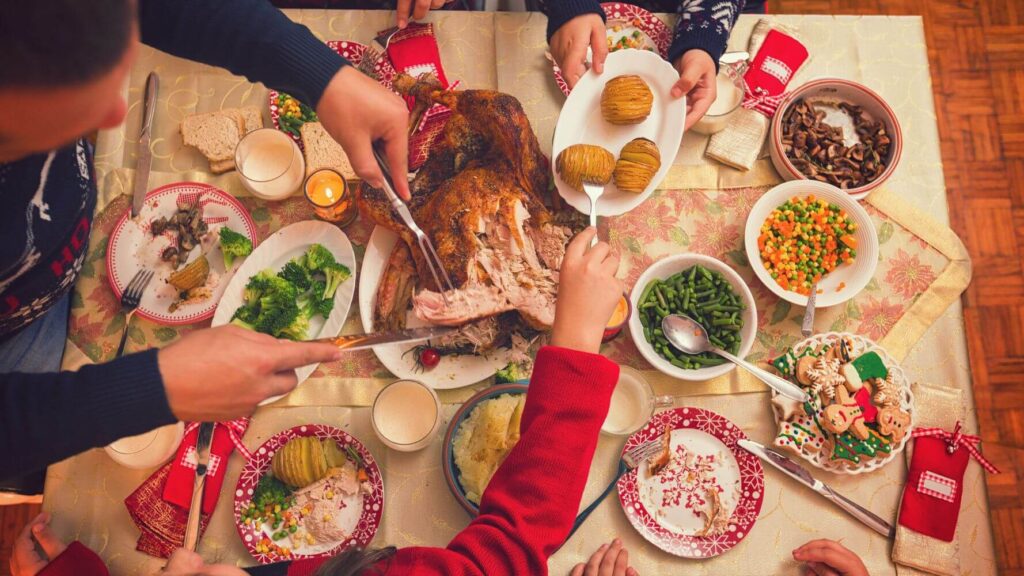It’s the gift giving season and also the time for cozy family gatherings and heartwarming conversations with loved ones over delicious holiday meals.
It’s not uncommon for adults to be reminding children the true meaning of Christmas – the religious significance which goes beyond excitedly ripping open their presents. How fitting then it would be to remind ourselves the true meaning of consuming food. So that we are mindful of what and how much we put into our bodies while indulging in a holiday dinner.
The alimentary canal or GI tract consists of roughly 30 feet long pipe starting from your mouth and ending in your anus – to be completely blunt! The main purpose of this pipe is to take in food, extract nutrition from it, absorb the nutrients so derived, and let out the waste. Few people realize that your GI tract is not considered the inside of your body. It’s still outside because anything that goes in it does not immediately become part of the general circulation.
It’s only when the nutrients are absorbed in the small intestines that they are truly inside the body where they can be utilized to nourish your cells as the blood carries them around. But before the food even gets to the small bowels, your stomach industriously churns it so it liquefies enough to smoothly pass through your bowels.
Although it’s tempting to do so, especially when there’s so much good food all around you, when you stuff yourself silly, your stomach can not perform the churning action properly. That results in food sitting in your stomach too long where it putrefies as it sits. Rotting food is rotting food – whether it’s in your belly our outside – it’s no different.
 Many people also don’t realize that flatulence is not a healthy phenomenon, even though we accept it as normal part of life. Gas is formed as undigested food rots in your gut, just like it would outside. Along with gas, if you wake up with a smell of last night’s dinner in your mouth, you know you ate too much or in the wrong combination, and didn’t digest your food properly.
Many people also don’t realize that flatulence is not a healthy phenomenon, even though we accept it as normal part of life. Gas is formed as undigested food rots in your gut, just like it would outside. Along with gas, if you wake up with a smell of last night’s dinner in your mouth, you know you ate too much or in the wrong combination, and didn’t digest your food properly.
Although, it’s best to avoid this situation by eating mindfully to begin with, here are a few tips that might help you deal with the (over)eating situation:
- Take a relaxing 20-30 minute walk before your meal and, especially, after. Walking before tones your digestive tract and prepares it to digest. Movement afterwards helps the body move the food along and supports enzyme production.
- Avoid combining your starches and proteins unless they are cooked together. So, meat and potato stew may not be too bad but having a piece of bread on the side would surely mess up your digestion. That’s because carbs and proteins digest at different rates and when you put them both together in a meal, neither gets digested properly and putrefies in your belly.
- Drink a tablespoon of freshly squeezed lemon or lime juice in warm water 20 minutes before your meal. It will prep your digestive organs to produce enzymes needed for digestion. Drink a warm tea made of freshly grated ginger after your meals to not only enhance digestion but also clean up your blood. Use caution if you are on blood pressure, clotting, or thinning drugs.
- If you still feel a bit heavy by the time you’re ready to hit the bed, lay on your left side. This laying position will support your body in digesting the supper because of how your alimentary canal is laid out.
The trouble with putting things down your mouth is that once they are in, the body has to deal with them. Being mindful about what and how much you give your body to process will prevent sickness in the days to follow. May your holiday season be filled with good cheer, fellowship, and joy.
